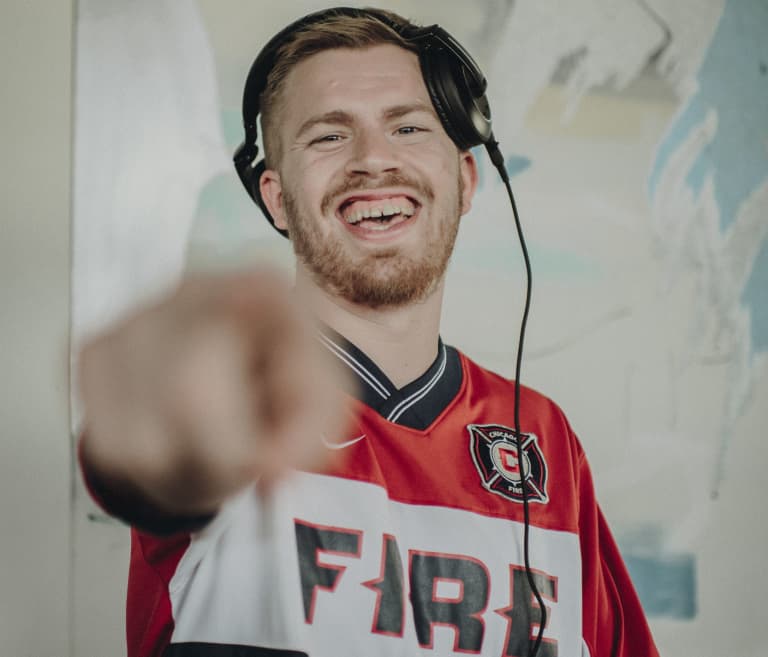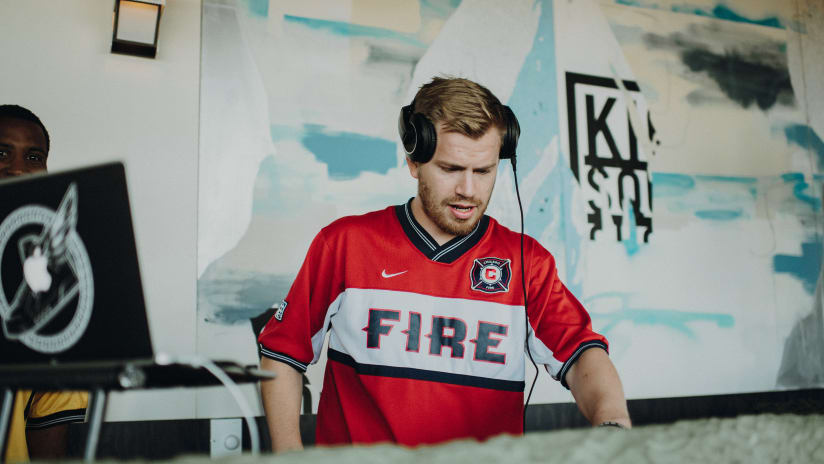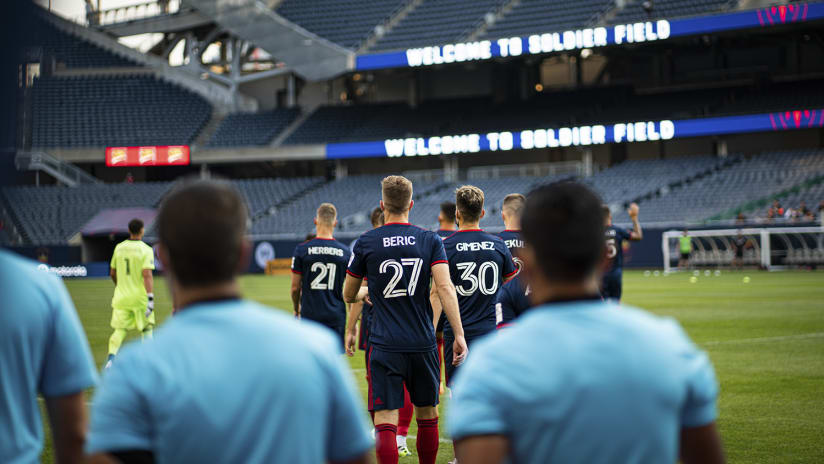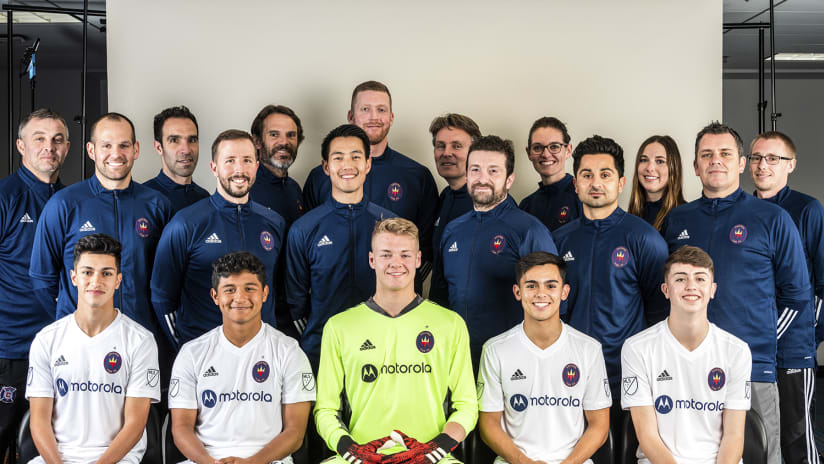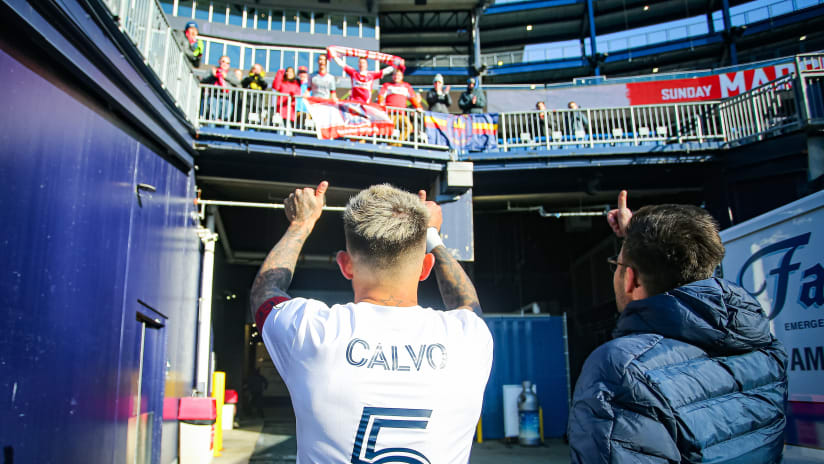Culture is often an elusive word. It’s a term that has a tendency to be used to describe something remote, existing above everyday lives and concerns. In sport it’s just as often invoked in criticism as in celebration, as commentators describe an intangible problem.
But culture is simply the means by which we express what we share — and in doing so, show that we recognize and value it. In Chicago it can be found anywhere from the anecdotes of long-time staffers, to the dress code expectations for Chicago Fire traveling players, to the words of “Stand and Deliver”, to Ben Step, hunched over his computer, investigating the musical tastes of Chicago players to meld with those of the city at large in his game day playlists…
Ben, aka DJ Step, is Chicago Fire’s musical director — a role he has occupied since a video mix he made, celebrating his first Fire season tickets in 2015, caught the attention of Fire staff and ultimately team chairman and majority owner Andrew Hauptman.
“Andrew wrote to me and said he really liked it and asked if I’d like to do one for every game, and I said, “I mean, sure…I’m going to be there anyway!” I started midway through the 2015 season, and then every single year we’ve added on to it. Whether it’s been more games, different style of activating, different ways to get involved, music, playlists or helping with producing commercials for the team. And then just trying to insert myself into situations and say, “What would a Chicagoan want from this? And what would a fan want?” Because I’m both.”
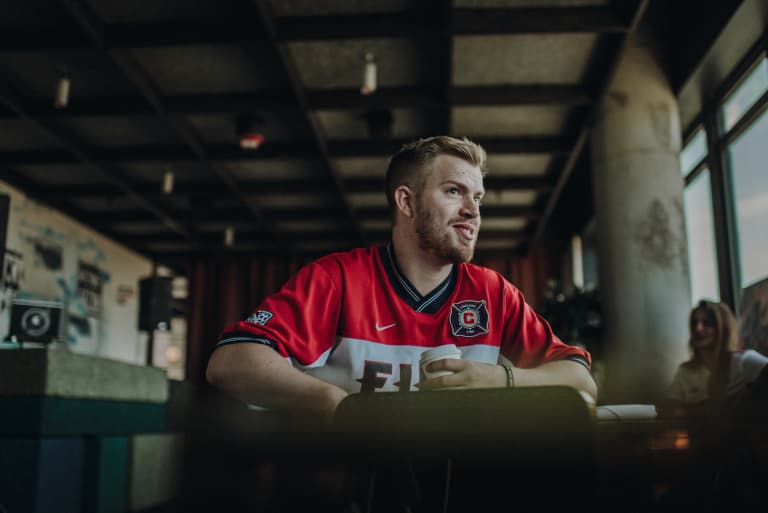
Ben and I caught up with each other at “Can I Kick It?” — the first in a series of cultural events Ben and his business partner Ernest Wilkins are planning to enhance the life of soccer fans in the city. This initial event is supported by the Fire and is first and foremost a watch party at the Ace Hotel in the West Loop, along with a raffle and a photo display of the best snapshots of this season. It’s a modest start, but as Ben notes, starting in Chicago can be the hardest part.
“People can be critical of anyone trying to create something in this city,” he says. “But the way Ernest put it to me was, ‘If not us, then who?’ So we’re trying this out, listening to people, and trying to grow something. And generally, once you show you’re trying, people in Chicago want to get on board and support.”
It’s a constant touchstone for Ben — what would Chicagoans want? He has the zeal of an adopted Chicagoan in addressing that. The future DJ Step grew up the youngest of three kids in Connecticut. As he puts it, “I had hand-me-down clothes, and hand-me-down love of soccer. I always had a ball, and my older brothers got me into the game before I’d even figured out what my favorite color was.”
When it came time for college, Ben moved to Chicago, studied at DePaul, played club soccer and fell in with the sport and musical circles of the city — always noting where they overlapped.
“I think music is like an avenue for a connection with people, but I think it also is a vehicle for connecting with people through soccer. The songs and the chants are normally remakes of current songs we know already, and they are what draw people closer together. I think — though I’ve never done a survey to verify this — you could ask somebody about a poignant memory of their favorite team, and nearly always it’s an away trip, or a certain song, or a certain moment. It won’t be “Remember when we signed X person, for this dollar amount in 2015 — it made my day…” No. It will be like, “We were in Montreal, this one song came on at the bar after we had won and they were closing down the bar and…” whatever. So those were the things that got me interested.”
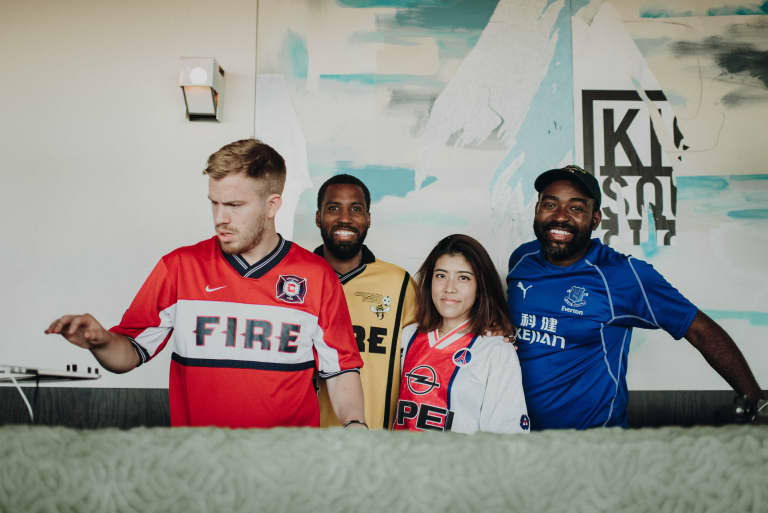
When his brother bought him his first season ticket to the Fire, Ben didn’t think much would come of the video mix he made to celebrate, but it’s ended up fusing two of his cultural passions in his current role. I ask him what music makes him think of Chicago Fire, and after calling out obvious connections like Johnny Cash’s “Ring of Fire” and Bessie Smith’s version of “Hot Time in Old Town”, Ben talks about Jazz made in the city and Blues from old Chess Records releases, before enthusing about Marshall Jefferson’s “Move your Body,” as a staple of the summer festivals that shivering Chicagoans look forward to every winter.
At the mention of Jefferson’s House classic, it illustrates a broader cultural connection for us. I lived in Manchester right at the moment Chicago House music was transforming the English music scene, as it circulated first through the city’s Haçienda night club. On any given night you were as likely to see younger Manchester United or City players at the venue as fans from the terraces, all living through a generational change in tastes. For better or worse, it was also the start of the now ubiquitous convention of TV soundtracking highlight reels — fusing musical and sporting memories together in new ways with new sounds.
For those of us there, the name of legendary Chicago House DJ Frankie Knuckles was as impossibly exotic and glamorous as Eric Cantona might have appeared to a soccer-obsessed Chicago teenager. A couple of decades earlier, George Best might have been the first footballer pop star, but he had been a one man outlier — this later incarnation of Manchester life felt like our culture. And Chicago was part of the fabric of that culture.
When the chance came to come to Chicago Fire, my checklist, beyond the needs of my family and professional goals, was cultural. I was stirred by what I knew of the Fire’s competitive history, and its supporter culture. I was also inspired by the legends of a world city and its mix of high culture and folk notoriety. But there was also a personal memory of how the music of this city had washed into my experience of the footballing culture I grew up with, thousands of miles away.
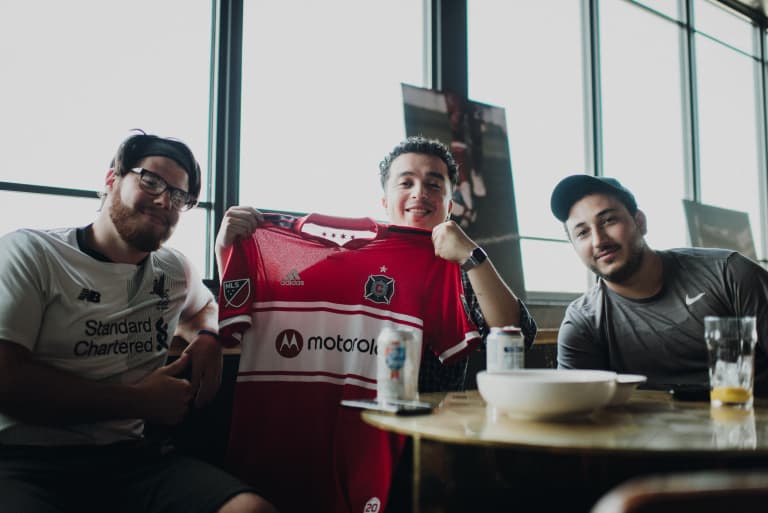
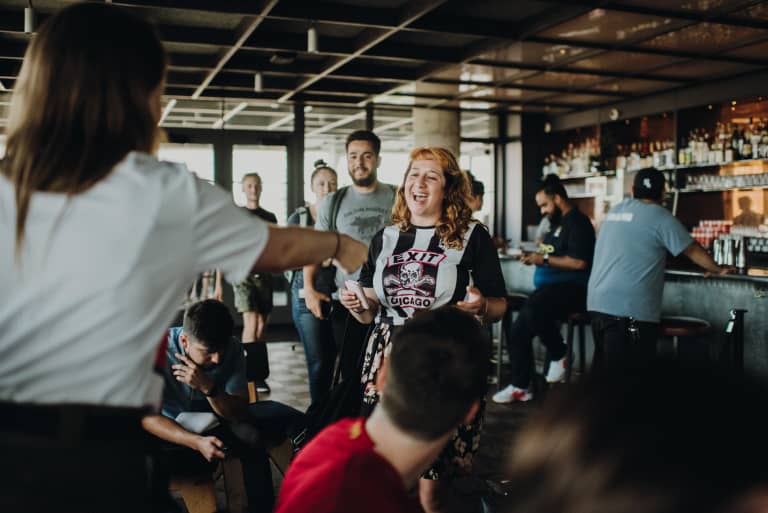
So when I ask Ben about his perfect soundtrack for the perfect Chicago Fire game, his response makes sense to me. He doesn’t have a set list of personal tastes he would want to impose — he has an idea of a culture he wants to reflect. He talks about the tastes of the players, and the diversity of the fanbase. He talks about how hearing the crowd sing “Vamos La Machina Roja” makes him think about where else he’d see such a great cross-section of Chicagoans in such close proximity. He talks about any soundtrack having to reflect the tastes and diversity of the players and the fans.
“There’d be House, Latin, Afrobeat, International. One of my responsibilities is hitting the goal siren, so I’d obviously like to hit that as many times as possible for as many players as possible! And I think the best part at the end is the lap the players do around the stadium, so being able to play “Just Can’t Get Enough” and being able to cap off a Fire win. That would be the perfect soundtrack...”
Can’t wait to hear it.
